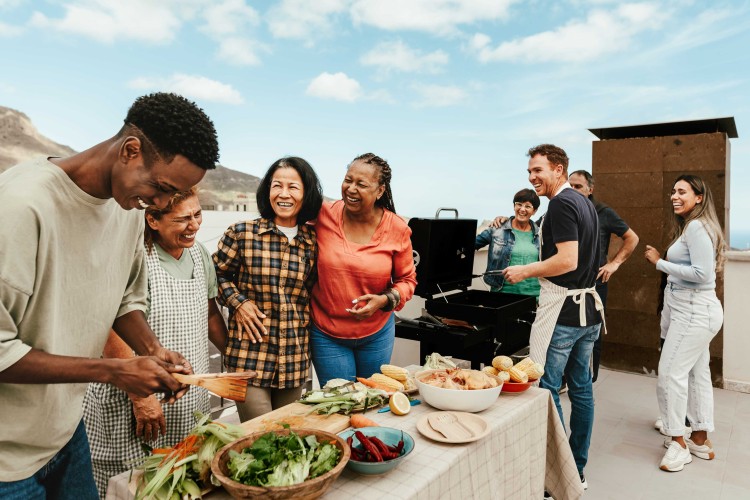
 | This learning module is part 2 of Nourishing Community: Cultivating Fellowship and Vision in Youth Services. |
Cultivating the Flavors of Culture
Welcome to the second part of our meal-inspired series where we highlight the importance and benefit of grounding our efforts in culture, community, and connection.
When we center culture, address biases, and move away from deficit-based approaches, we honor the entire spectrum of the human experience. When programs center the unique experiences of young people and the cultures they come from, they do the real work of seeing them and their experiences.
Have you noticed that the most satisfying meals we share are colorful and filled with diverse spices and flavors? That’s because it's not just about one ingredient or a single cooking technique, it's the blend of many elements from countries and communities worldwide. Culture(s) provides many colors, spices, and flavors, metaphorically speaking, as we work towards a vision of bringing together responsive approaches and a diversity of options to see and support young people.
Culture and cultural identity provide a sense of belonging, fostering a solid foundation for individuals to feel seen and supported as they navigate life. Cultural norms often emphasize collective responsibility, encouraging community members to collaborate and support one another. Shared values, traditions, and customs within a culture create a supportive network, promoting social cohesion and mutual assistance. Dig deeper.
Culture includes our common beliefs and the practice of uplifting one another – for example, the Haitian funding circle, Sol. In this cultural practice, community members collect money into a fund and, in each funding circle, a new member gets to claim the money in the fund. Families come together to support each other with housing needs, basic needs, or savings if access to banking is a challenge.
Relationships rooted in cultural practices and rituals can offer practical guidance for how we experience life. In the African diaspora, for example, elders hold a significant role. Through storytelling and sharing personal experiences, elders guide the next generation through the awareness of history; this is intergenerational mentorship. Intergenerational relationships pass down wisdom and insights that go beyond textbooks and formal education. This equips the younger generation with practical knowledge and a deeper understanding of life's challenges, contributing to their personal growth and development.
Build community by embracing, integrating, and celebrating cultural heritage. Don't know where to start? Consider a Community-Based Participatory Research (CBPR) project. CBPR is “a respectful, ethical, sympathetic, and useful” collaborative approach to cultivate the goals of a community. Dig deeper.
Reflect and Cultivate
Set aside 15 minutes this week and prepare something to write with - a phone notes app, pen and paper, or this PDF. Spend some time answering the following (yes, in writing):
- What roles do culture and cultural identity play in the way you carry out your role?
- In your role, what are the opportunities to embrace, integrate, and celebrate the diverse cultures represented in your program community?
Module Navigation
- Setting the Table
- Cultivating the Flavors (Current Module)
- On Fellowship


